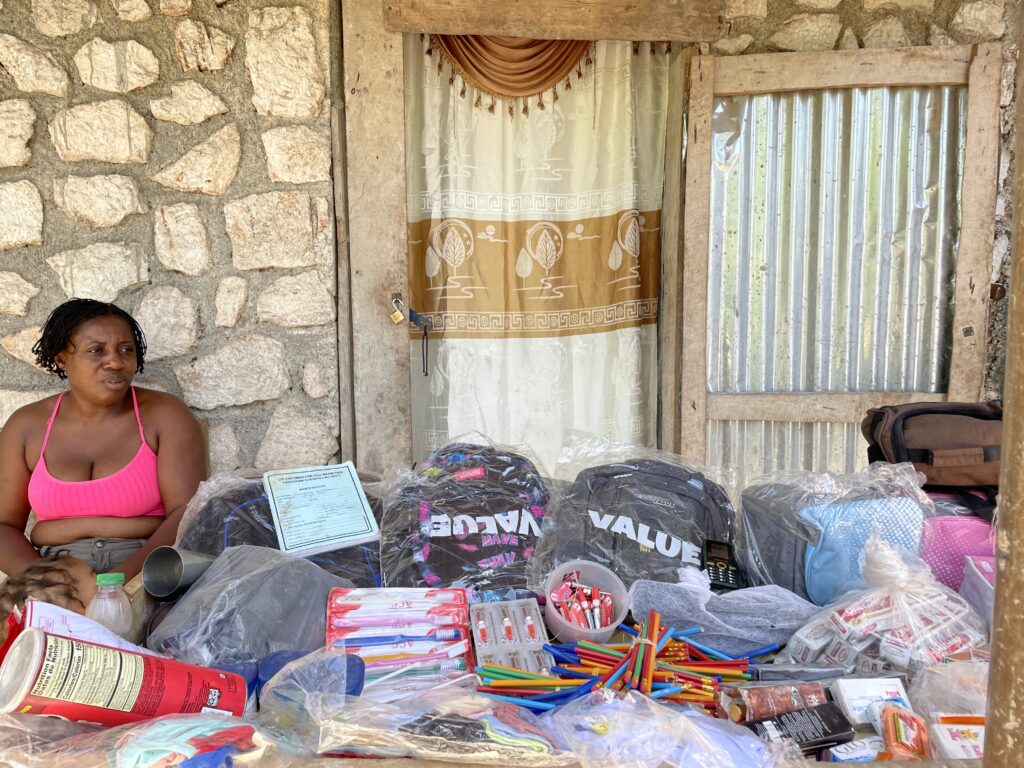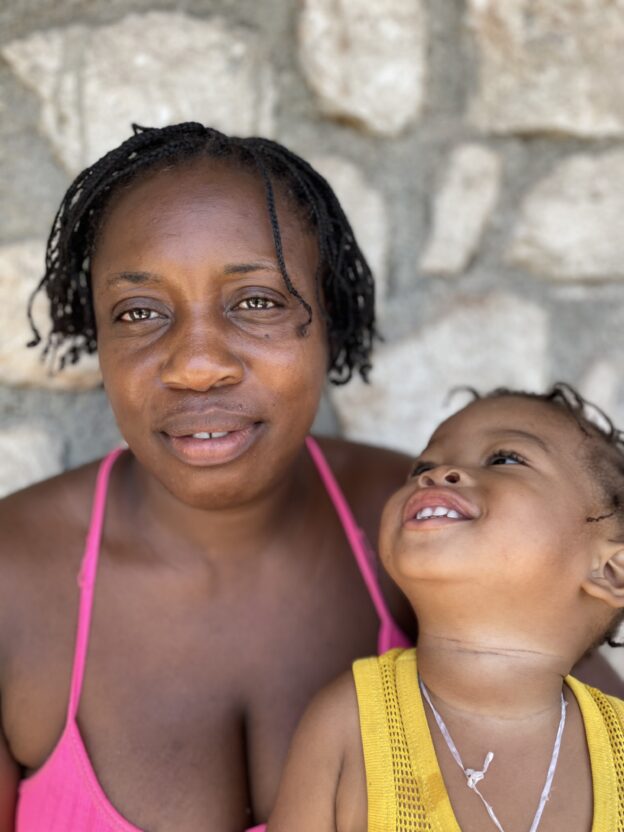Franceline lives in Zetrèn, a community just off the main road that winds from downtown Bonbadopolis back north through the commune’s second rural section. She lives there in a room with her four children and one grandson.
Up until a couple of years ago, her husband lived with them too. They all shared shack down the hill, behind her current place. Her husband earned the income that the family depended on, cutting trees for charcoal makers or doing day labor for local farmers in their fields. It wasn’t much, but it meant that the family had something to eat and that the children could go to school.
Even then, it was hard for Franceline. She didn’t earn income herself. “You just sit around waiting for someone to put something into your hand.” But her husband died, and then Franceline had to fend for the kids and for herself.
Without capital to invest or any experience at business, she ended up just doing laundry for neighbors. They generally paid her in food, rather than cash, so she no longer had a way to pay the children’s school fees, and she had no way to set anything aside to create a better way to earn. Her children were often hungry. “It was so hard when they would cry.”
Franceline joined the CLM program, but she felt from the start that raising animals, which most members take on as their first CLM-financed business, would be challenging. “I didn’t want to start with a lot of goats because I don’t have anyone to help me look after them.”
Despite her reservations, she decided to buy a single billy goat with 7,500 gourds of the investment funds that the program provided. Buying a male is very unusual for CLM members. Almost all choose females, banking on their producing offspring. Franceline, however, had thought it through. “The females they were selling at the time were from Bòdmè. They are used to being kept tied up.”
Bòdmè is another neighborhood of Bonbadopolis, along the sea shore. Folks who keep goats in that part of the commune don’t keep them tied. They let them wander to find their own food, and what they find along the shore is different from what goats eat around Zetrèn. Franceline decided that, rather than taking a risk with a poorly adapted female, she’d raise a billygoat until it was valuable enough for her to sell it for enough to buy a better female. She does want a female eventually, because she thinks that having a small number of goats is the best way for her to make sure that she has money every year to send her kids to school.
The first payment of her investment fund was 15,000 gourds, so buying the goat used just half of it. She used the rest to start a business. She bought snacks — cookies, crackers, etc. — and began to sell them in front of a large school nearby. She managed her profits carefully. “If I have 100 gourds, I try to eat just 25.” Though she immediately admits the spending just 25% of her profit is an exaggeration, she sticks to her point. “I keep saving something to add to the business.”
With her house falling apart, she wasn’t sure where she was going to live, even with the support that the program promised her. But her grandmother’s house was empty, and she had a talk with her aunt. The house could never become hers. Her grandmother had several children. But her aunt agreed that she could use the materials that CLM would provide to repair one of the house’s larger rooms. That’s where she and the kids live now. She’s thinks of building her own house on her father’s land, where she and her husband had their shack, as a project, but it doesn’t seem close just yet.
When it was time for her to receive the rest of her investment capital, she knew that she wanted to grow her business. Since she was selling right in front of a school, she stocked up on school supplies: pens, pencils, notebooks, etc. Sales are down right now, because summer vacation is not over yet. But when her savings group ended its 12-month cycle, she took the payout and bought some larger items, like school bags. She is already displaying them in front of her home. She’ll move them to the front of the school, with the rest of her business, soon. Eventually, she would like to be able to sell a full range of groceries.

